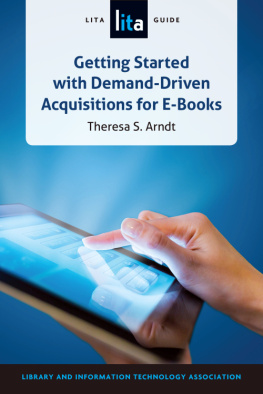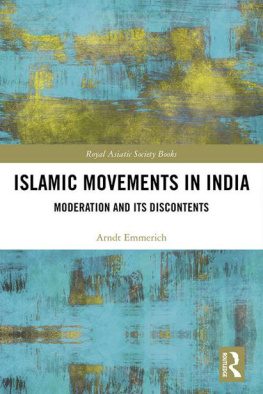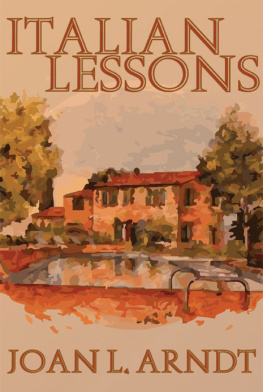The Late Fortuna and the Rise of Modernity
1Fortuna s Transformations
Fortuna, the goddess of chance and luck, should actually no longer have had a place in the Christian mediaeval period, at least if Christianity had abided by the condemnation of Fortuna in late antiquity by the church father Augustine. As Walter Haug in a reference to Matthew 10:29 aptly put it, Fortuna would have no place [in a world] in which not a single sparrow falls to earth without the will of God. Fortunas actions could thus lead to abrupt change in individual cases, but what seemed unjust in an single case was actually subject to a balancing logic overall.
The Renaissance formed a very different concept of the increasingly popular Fortuna. She was considered to be fundamentally unpredictable, but also potentially open to influence, either through fortitudo or prudentia , thus reviving and renewing ancient ideas on the subject. The former was also based on authors such as Terence (fortis fortuna adiuvat), but primarily on Cicero with his concept of a vir virtutis , For with Fortunas help, a new relationship of the individual to history can be marked out, thus enabling us to follow the two great epochal trends of the early modern period, namely the development of a new understanding of historical time (and open future) and the constitution of a self-consciously acting subject.
The history of Fortuna shows that this transformation occurred neither quickly nor in linear fashion. A single moment cannot be determined in which, as Jacob Burckhardt illustratively put it, the veil was lifted under which the mediaeval period had lain dreaming or half-awake. In fact, the opposite is more the case, namely that there was a long period of overlap between late mediaeval-Christian and proto-modern views of mankind and history. Fortuna was party to neither one nor the other. In fact, she was quite the opposite, contributing to the practical mediation between the fundamental contradictions which persisted for an extended period of time. For pointing out these contradictions meant admitting that the success and failure, the luck and misfortune of a person could be ascribed neither entirely to providence nor entirely to his or her own achievements and virtues, and above all meant emphasising that it was indeterminable in a very significant way which of these factors was most decisive. The motif of Fortuna, therefore, continued to appear during the Renaissance as a quasi-divine power, while also representing a deficiency, namely human inability to predict and plan the courses of their lives and courses of action, i.e. the lack of ability both to dispose over oneself and to decipher the mechanisms of history in their entirety.
The lessons to be learned from this varied and transformed considerably during the Renaissance. In Dantes Divina Commedia (ca. 13071321) as well as in Petrarcas De remediis utriusque fortunae (1366), Fortuna initially remained a figure who acted mostly within the confines of Gods providence. For the individual, this meant that it appeared to be neither virtuous nor promising to rebel against Fortuna, i.e. to question Gods providence. Fortuna, however, historically distributed luck whimsically and unequally. The Renaissance experience of a rather increasing amplitude in the vicissitudes of luck and misfortune, rise and fall, poverty and wealth, historical success and failure, led to a need for new models both of history and of human control over it. Both emerged in places where such vicissitudes could be most directly observed and indeed experienced, namely at the courts and in the city republics of Italy. There, the motif of Fortuna experienced a new blossoming: strokes of fate became a literary theme, and even, to a certain extent, a structural element of biographical narrative, such as in Boccaccios De casibus virorum illustrium written around 1360.
But how should one brace oneself for these whims of Fortuna? In the works of many authors, including Boccaccio, the dominant argument is a moralising one which insists that pride and greed must be avoided, as they provoke a punishment which corrects the will to advance if it is driven by sinful motives. An actual transformed relationship between virtus and Fortuna did not appear until the quattrocento: many authors then began to portray Fortuna as a power which could be controlled through virt , although the extent of this control remained a matter of contention. Leon Battista Alberti highlighted the fact that individuals and peoples were the architects of their own fortune. Ones own virt was thereby marked as a determining factor to which Fortuna potentially adhered.
Fortuna was now literally being brought down to earth and luck was becoming potentially controllable. This subjugation topos had notable gender connotations, for men were now conceptualising the goddess as a women. This was most clearly formulated by Machiavelli, who famously wrote that Fortuna is a woman. In order to subjugate her, according to Machiavelli, it is necessary to beat her and strike her down. And one also sees that she lets herself be won more by the impetuous than by those who proceed coldly. And so always, as a woman, she is the friend of the young, since they are less cautious, more ferocious, and command her with more audacity.
A subject is now assumed who observes the passage of time, continually calculates his chances and attempts to make his luck, whether this be through a spirited action or through a carefully considered investment.
As modern as both this image of a man of action making his own luck and that of a clever agent calculating his chances are, they are constantly put into perspective by contemporaries. Machiavelli, for example, cautions that control over our actions is only half based on virt , with the other half remaining the domain of Fortuna.
It is at this point that the present volume begins, taking the fact that we know disproportionately little about the late blooming of Fortuna following the Renaissance as its point of departure. It also raises questions concerning the significance of the subsequent end of Fortuna, i.e. her significance for the epochal transition to the early modern period. In doing so, as the contributions to the volume clearly show, a wide spectrum of scenarios and concepts come to the fore, including vernacular traditions, confessional differences and complementary concepts, such as those of luck, fate and contingency. Before introducing this spectrum of topics through a summary of the individual contributions, however, we consider it necessary to mention several more general aspects of the question regarding the epochal transition.
2The Late Fortuna a Rise of Modernity?















